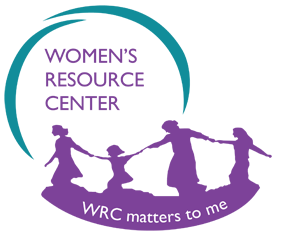
Prevention Education
At the Women’s Resource Center, we believe that preventing violence before it occurs is just as crucial as providing support afterward. Our Prevention Education program is designed to reduce and ultimately end domestic violence, sexual violence, stalking, and workplace harassment by equipping individuals and communities with the knowledge, skills, and tools necessary to cultivate safe, respectful relationships.
WRC’s Prevention Education Services
Tailored Workshops
Our Prevention Education Workshops are fully customizable, ensuring each session is designed to address the specific needs for your group or organization. We provide practical strategies that empower participants to recognize and prevent domestic violence, sexual violence, and stalking.
Workplace Harassment Prevention
Our Workplace Harassment Prevention workshops equip employers and employees with practical tools to identify, address, and prevent harassment in all its forms, fostering a respectful, equitable, and safe work environment.
Bystander Intervention Training
Our Bystander Intervention Training equips community members with the skills and confidence to safely intervene when they witness or suspect violence, turning bystanders into proactive allies in the fight against domestic violence, sexual assault, and stalking.
Community Outreach
This brings prevention education directly to schools, neighborhoods, and organizations, empowering individuals with the awareness and practical tools necessary to stop domestic violence, sexual violence, and stalking before they start.
Teen Dating Violence Prevention Program
Our ten-week Teen Dating Violence Prevention Workshop empowers young people to identify healthy relationship dynamics, recognize warning signs of abuse, and build the skills necessary to foster safer, more respectful connections.
Prevention Education
At the Women’s Resource Center, we understand that preventing violence is as vital as offering support when it occurs. Through our Prevention Education program, we aim to reduce and ultimately eliminate domestic violence, sexual violence, stalking, and workplace harassment by empowering individuals and communities with the knowledge, skills, and tools to foster safe, respectful relationships.
What is Prevention Education?
Prevention Education focuses on proactive measures to address the root causes of violence. This includes teaching concepts such as healthy relationship dynamics, boundary-setting, consent, and bystander intervention. Our program engages community members of all ages and backgrounds—students, employees, faith groups, and more—to break the cycle of violence and foster a culture of respect.
- Healthy Relationships: We offer workshops that explore communication strategies, conflict resolution, and respect for personal boundaries.
- Consent and Sexual Violence Prevention: We stress the importance of informed and enthusiastic consent in every interaction, helping participants understand their rights and responsibilities.
- Bystander Intervention: We empower individuals to recognize potentially harmful situations and safely intervene or seek help.
- Workplace Harassment Prevention: We partner with local businesses and organizations to provide training that address harassment, discrimination, and bullying in professional settings.
How it Prevents Domestic & Sexual Violence, Stalking, and Workplace Harassment
- Changing Attitudes and Behaviors: Education helps challenge harmful stereotypes and social norms that enable violence. Research shows that consistent messaging on empathy, respect, and mutual consent can significantly reduce incidents of abuse (CDC, 2017).
- Building Awareness and Skills: Knowing the signs of an unhealthy relationship or workplace culture empowers individuals to speak out or intervene. Equipping people with communication and conflict resolution skills fosters healthier, more respectful interactions (NSVRC, 2018).
- Creating Supportive Communities: When entire communities—schools, businesses, faith groups—participate in preventive training, they become actively involved in holding one another accountable. This collective effort helps shift community norms in favor of non-violence and respect.
Why Should We Be Teaching It?
- Early Intervention: Teaching children and teens about respect and consent lays the groundwork for healthy relationships throughout life.
- Longevity of Impact: Evidence-based educational programs are shown to reduce violent behaviors in both the short and long term, improving community well-being (CDC, 2017).
- Holistic Approach: Prevention works best when it involves everyone—from parents and teachers to employers and community leaders. When multiple sectors support prevention, its impact is far more substantial.
Why it Should Be Mandatory
- Standardized Accountability: Mandatory education in schools, workplaces, and community settings ensures a consistent baseline of understanding and responsibility. Having clear, enforced policies and training helps reduce incidents of harassment and violence (EEOC, 2016).
- Universal Access: Making prevention education compulsory eliminates barriers to access. Everyone, regardless of background or resources, benefits from learning about healthy boundaries, consent, and respectful communication.
- Proven Effectiveness: Research from reputable organizations such as the CDC and NSVRC shows that mandatory prevention and training programs can lead to measurable decreases in violent behavior, reinforcing the importance of institutionalizing these efforts (CDC, 2017; NSVRC, 2018).
Our Commitment as the Women’s Resource Center
Guided by our pillars of Safety, Dignity, Choice, and Hope, the Women’s Resource Center continues to lead with innovation and compassion. Our Prevention Education offerings include:
- Tailored Workshops: Curriculum adapted to the unique needs of schools, workplaces, and community groups.
- Ongoing Support: Follow-up resources and consultations to help organizations implement lasting changes.
- Professional Expertise: Our trained educator stays current on research-backed strategies to ensure the highest standard of content and impact.
By embracing Prevention Education, we can collectively build a community where everyone feels supported, respected, and safe. If you’re interested in hosting a training or workshop, please reach out to the Women’s Resource Center. Together, we can shape a future free from violence.
References
- Centers for Disease Control and Prevention (CDC). (2017). Preventing Intimate Partner Violence Across the Lifespan: A Technical Package of Programs, Policies, and Practices.
- National Sexual Violence Resource Center (NSVRC). (2018). Key Findings from the Field: Highlights of NSVRC’s Approach to Prevention.
- U.S. Equal Employment Opportunity Commission (EEOC). (2016). Report of the Co-Chairs of the EEOC Select Task Force on the Study of Harassment in the Workplace.
For more information on our Prevention Education program or to schedule a training, please contact the WRC Prevention Education Advocate at (405) 364-9424 ext. 600.

